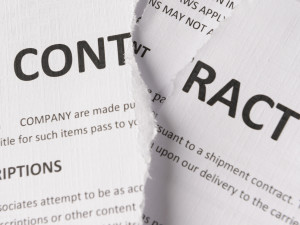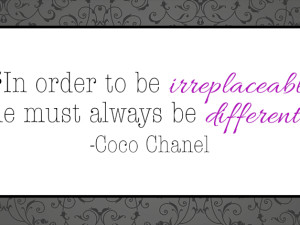
In my past life working in Corporate America, I remember being involved in a deal to open the Turkish market. We had met the principle of a Turkish distribution company who wanted to represent us not only in Turkey, but also the UK and 5 other European countries. They presented a very aggressive sales plan in order to entice us. We told them to first prove themselves with Turkey, and then we would entertain other markets.
As we continued discussions with this company, I became very uneasy regarding the deal…the business plan was too aggressive; they wanted to move too quickly; their staff seemed inexperienced. I have always trusted my instincts….and in this case, every instinct told me that this partner was wrong but our company wanted the deal, so we agreed to move forward.
Prior to signing the contract, the recession started and this company began to unravel, leaving a trail of debt and angry customers who had prepaid for products and franchises yet received nothing.
The lesson here is that there are often ‘cracks’ beneath the surface that you must look out for when signing a new partner.
Choosing the wrong partner can set you back years so it is important that you get it right the first time. Don’t let your eagerness to be in a certain market blind you to the truth and ignore these 8 possible warning signs:
Warning #1: Your prospective partner wants to rush the launch rather than make sure it is done right. One of the telltale signs of a weak partner is when he/she wants to rush a launch just to catch a season. This may involve launching your brand at the wrong time of year (i.e., during holiday sales), selling closeouts or broken collections rather than the full offering (since this is all that is left) or scrambling to get fixtures or retail materials exported to the market in record time.
Tip: Think long term; choose a partner that is looking to develop a business, not place an order. The biggest mistake that you can make is entering a market when you are not prepared or when it strategically or logistically does not make sense. The best international partners know the importance of proper planning and will prefer to wait a season or two to launch a brand if that means getting it right.
Warning #2: Your prospective partner resists providing financials for a credit check because they will be “paying in advance”. Whether or not your potential partner intends to pay in advance should have no bearing on your performing a comprehensive credit and reference check.
Prior to signing a contract, you must know 1) your partner’s reputation in the market 2) if your partner can properly support your brand’s expansion plans and 3) if the partner’s ability to prepay is dependent on his/her ability to collect from customers or sell previous inventory.
Tip: Only appoint financially strong partners who can support your brand no matter what the market condition. Protect yourself by avoiding any credit risk, especially in the first few years of the relationship. Work with your prospective partner to establish the best way for payment: cash before shipment (accompanied by a deposit with the order), stand-by letter of credit, or another form of [solid] guarantee. Remember, if a partner cannot pay for the goods, you will get stuck with the inventory!!
Warning #3: Your prospective partner submits a proposal with an overly aggressive sales plan. To get your business, weak companies will often promise the world, knowing that they will never reach that plan. They take the chance that a brand owner will not get rid of them so quickly, knowing that a partner change will set them back significantly in their development efforts.
Tip: Make sure that the sales plan makes sense based on a reasonable distribution plan and store count. If there are major retailers listed, make sure that they have already agreed to carry your brand and are not just “pie in the sky” dreams created by the company to lure you into the deal. If your prospective partner can justify the sales plan, tie it to minimums that are 70-80% of the plan.
Keep in mind that even with contract minimums, forcing a partner to buy product that they can’t sell is the kiss of death and often the beginning of a downward spiral for your brand.
Remember….if the plan sounds too good to be true, chances are it is!
Warning #4: Your prospective partner wants to make major changes to your brand before you even get started. While certain adaptions to your brand are inevitable in certain markets due to country regulations, cultural considerations etc (i.e, labeling, translations….), beware of the company that wants to overhaul your brand without monitoring performance and feedback from consumers first.
Tip: Do your research and do not give up total control of your brand to your local partner. If you did your research, you already should know if your product range has a good chance of working and what adjustments to your product, materials or message, if any, must be made prior to the launch to avoid logistical or cultural problems. Strong local partners will want to keep the integrity of your brand and will generally want to wait for consumer feedback before making any major product change recommendations.
Warning #5: Your negotiations are overly tense and confrontational. While a negotiation isn’t supposed to be a “love fest”, if you find that you are arguing over many small points or are agreeing to unreasonable terms out of fear of losing the deal, think twice before moving forward. What happens during your business discussions and negotiations is often a foreshadowing of things to come.
Tip: Run away from companies with a poor cultural “fit” and/or divergent interests. If you are already fighting before the contract is signed, the chance that you will be able to work through big issues as they arise during your relationship is highly unlikely. Make sure that you and your partner have strong cultural compatibility and the same vision for the future prior to signing a contract.
Warning #6: Your prospective partner signs your contract immediately without negotiating at all. An eager partner is not always a bad sign, especially if your brand is “hot” and highly sought after. On the other hand, a partner that just signs anything without even having a lawyer review it can often signal a lack of professionalism and desperation.
Tip: Look carefully at your partner’s other brands to see if they are doing well. Every contract is a 2-way deal….even eager partners should want to protect their company’s interests and insure that all clauses are legal under their country’s law. If a company doesn’t think enough about protecting its own interests, chances are that they will not care very much about your interest.
Warning #7: Your prospective partner represents a brand or brands that compete directly against yours. This is a tough one. If you have an agreement with a retail chain, then it’s expected that they will sell competing brands. Or, you may find that in certain countries, the strongest companies carry a large portfolio brands that compete against yours.
What you need to watch out for is having a partner that “parks” or “collects” brands, meaning that they only want your brand in order to control the competition.
Tip: Make sure that you tie your agreement to terms that will prevent your brand from being “parked”. This may mean putting aggressive, yet achievable minimums in your contract or clauses that allow you to take back categories that are not being maximized. Depending on the strength of your brand and its business model, you can also tie your agreement to a distribution plan that requires a certain number of branded stores or wholesale accounts and possibly even a minimum space requirement where appropriate.
Warning #8: You have communication issues prior to signing the contract. If you find that you are having problems communicating with your prospective partner’s staff or it takes several attempts to receive requested information, this is a big warning sign. Good communication with your partner is critical to being successful in a market. Communication issues normally get worse, not better once a contract is signed.
Tip: Determine the reasons for the communication problems and discuss with your potential partner. If the problem is language, make sure your potential partner has a point person who speaks your language and can be in charge of communication. If you believe that the problems are due to cultural miscommunication, investing in cultural training may prove to be very helpful. But…. if you feel that the problems are due to a lack of organization, staff inexperience or basic incompetence, you are probably better off moving on and finding a new partner.
In summary, your international partner will serve as the ambassador of your brand in the market that you are entering so it is important to be extremely selective when you make your choice. Take your time and look for clues that could signal trouble ahead. Sometimes the warning signs are not completely obvious so it is important to trust your instincts….as your instincts are usually correct.





